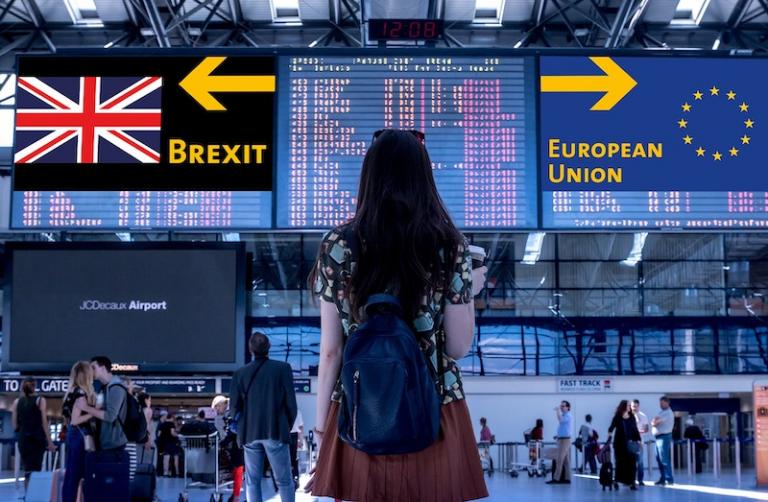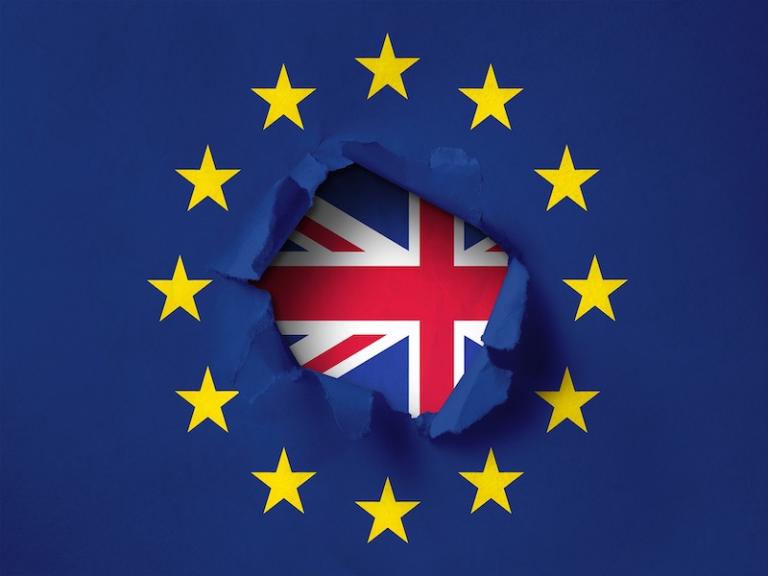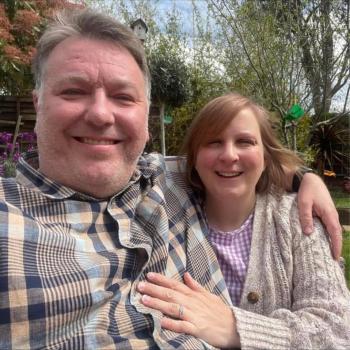
The UK is in crisis over Brexit.
We are split more thoroughly on this than I can ever remember us being split about anything in my lifetime.
As Christians, we pray for the future of our nation at this time. But I also think we have a responsibility to try to understand the perspective of people we disagree with. We should not be so partisan as to refer to those on the other side of the argument to us as crazy. There are many good christians on both sides of this particular argument and also many who are internally divided and even after all these years not sure what they think.
I thought I would do my best in this post to explain the current situation for those who have perhaps not been following it, try and suggest why people believe what they do, and perhaps suggest what may be the only way out.
One thing that is not often said about this situation is that in fact many of my countrymen have a severe case of Brexit Fatigue and are simply bored, no longer really caring what happens. A lot of people have given up following the news on it. But it is clearly the most crucial decision point we have faced as a county in decades.
Many of us no longer follow the detail, and you might therefore be surprised to realise that what is happening at the moment is just the beginning. We are not even arguing about our future relationship with the EU after we have left. We are arguing about the transition arrangement. SO much has yet to be agreed, and we can’t even agree to the first steps. This Brexit crisis will go on and on.
To use a marriage analogy, what is before parliament at the moment is not the divorce deal, but merely a separation arrangement. We have been together too long to simply untie the knot, the argument goes. So a transition period will allow time for things to remain essentially as they are whilst we figure out what to do next. It is as though we are separating but living in the same house together and beginning to try to build a wall in the middle to divide it in half. It turns out that when part of the EU to separate brings up many of the issues that a divorce needs to address, without actually resolving any of them.
Around a million people marched yesterday in London demanding a re-run of the 2016 referendum. Almost five million signing an official petition asking the government to just call the whole thing off and cancel Brexit. But on the other side, a lot of people frustrated that we haven’t left already, and not understanding why Brexit doesn’t mean Brexit, and leave doesn’t seem to mean leave any more.
Many of my countrymen agreed with Mrs May when she publicly and angrily criticised MPs for not making a clear decision. After all they have voted against May’s deal, leaving with no deal, and carrying out another referendum: what do they want to do?
The problem with May’s frustrated speech is that those very MPs have since become increasingly incandescent with her, and in some cases are in genuine fear of their lives due to the abuse they have received from some members of the public. And the MPs she berated are the ones that she needs to support her deal at the third time of asking. Even some of her closet allies are saying this weekend that it is time she simply resigned.
We are stuck at the moment because compromise in this situation just isn’t working. After decades of being in the EU, but always as a bit of a reluctant partner, we can’t find a satisfactory way out. And it seems we want to have our cake and eat it. When we were in we negotiated a lot of opt outs. Now we are on our way out the door we want to hang on to many aspects of our relationship.
— Lisa M Watkinson (@LisaMarieWatki) March 20, 2019
Right now none of our options seem likely to gain the support of a majority of MPs. But there are really only four things left that we can reasonably do (Mrs May outlined a similar list in her recent letter to MPs)
1. Leave without a trade deal
The problem with this is that we are so dependent on trade through Dover that if it took an extra couple of minutes to conduct the additional checks a no deal requires we would face huge delays, and the risk of food and medicine shortages. We are not prepared. And it seems crisis would ensue, as well as huge economic costs. Some people doubt this, however, pointing to “project fear” and the fact that the latest employment figures for the UK are the best they have ever been.
But only the really committed Brexiteers believe that we are really ready for dropping off a cliff edge like this. And whilst it has the logical draw of “leave means leave” and we would no longer be subject to any of the EU rules, it is a terrifying prospect for many.
As a country are we really ready for this? Are we set up to make all the decisions that we have been delegating for decades to the EU? Do we want our children to be able to freely move around EU to live and work as some of us have done?
Some people say that the EU is anti-democratic and that despite any problems we would be better of without them and the pain will be worth the gain. Many British people think that the EU is holding our nation back.
Some others looking on think leaving without a deal would be as crazy as lemmings all jumping off a cliff.
2. Accept Mrs May’s Deal
It may be an unpopular position, but I am actually quite sorry for Mrs May. It genuinely seems that facing the unpractical views on both sides of the argument, she has rolled up her sleeves, and done her best to negotiate the transition agreement with the EU.
The EU have said that they are not prepared to even begin negotiating our final relationship until we leave. And so the transition agreement means that we can sort of leave, whilst retaining most of the benefits of membership whilst the really hard negotiation continues. I honestly think that many of my fellow countrymen have little idea just how much more of this is still yet to come.
So Mrs May’s deal really neither leaves nor stays. It is one foot in and one foot out. And the EU has said repeatedly they will NOT re0pen it.
So do we just hold our noses as a country and accept being outside of the political decision making but having to still follow the rules so we can trade? And is there any realistic way out of this half-in half-out transitional arrangement?
Will we be in transition for ever?
3. Try to renegotiate an alternative deal
This is the position of the Labour Party at the moment. They want a softer Brexit even than Mrs May’s deal with us staying in the customs union and even some of the regulatory bodies. So when they vote against May’s deal they are not voting against it because they think it keeps us too close to Europe, they are voting against it because they want to be even closer. They don’t have a problem with the backstop because they want the whole country to remain in a similar relationship forever.
 In point of fact the political agreement that sits as part of May’s deal is actually very vague. It pushes down the road arguments about the points that Labour are making. Labour could easily support the withdrawal agreement then try to change the terms of the later negotiations.
In point of fact the political agreement that sits as part of May’s deal is actually very vague. It pushes down the road arguments about the points that Labour are making. Labour could easily support the withdrawal agreement then try to change the terms of the later negotiations.
The argument in favour of negotiating further is that perhaps before we leave we should really know what we are leaving to. It seems that there is little stomach from the EU for this.
But equally if we want to remain even closer than Mrs May’s deal to the EU, perhaps the best option is to just stay in altogether whereby we at least get an influence over the rules.
It is perhaps a strange thing that we voted to regain our influence, but if we leave under many circumstances we have LESS influence than we do now over the laws that will govern our manufacturing and trade.
4. Call another referendum and perhaps stay in after all
If we want to remain closer to the EU, should we simply stay in?
Although the referendum decided we should leave, it was three years ago. A lot has changed since then.
And it turns out we had no idea how hard it would be to negotiate a smooth exit. Disentangling ourselves has hit many snags.
Not least what happens to Northern Ireland. If we leave the EU in any real sense then a border has to be created between Northern Ireland and Ireland. And that is not something anyone wants. The backstop in Mrs May’s deal attempts to address that but is unpopular.
So, many people say, let’s just forget about Brexit and stay after all. It would be legally possible for parliament to just cancel Brexit.
But a second referendum would presumably be needed to make this politically acceptable. the argument goes, that if the government is asking MPs to think again and vote again, why shouldn’t we ask the people to also vote again? Opinion polls suggest that it would be close again, but that remain might well win on this occasion. But does that resolve our long-standing ambivalent relationship with the EU?
If Mrs May agreed to put her deal to the public in a referendum she would lose the support of the real Brexiteers in her party. But she would gain the support of those who no longer want to leave (if they ever did).
A referendum could be simple in which case it is likely to be a simple choice between accepting May’s deal and staying in the EU. Or it could be more complicated with an attempt to determine what kind of leaving people wanted: May’s deal, a softer deal, or no deal.
What will happen next?
If MPs can’t come to a clear decision this next week, then it seems a further delay is inevitable, a referendum highly likely, and a new set of UK elections to the EU parliament three years after we voted to leave a legal necessity.
How do we create a compromise when just under half of us want to leave, just under half of us want to stay, and the rest of us are either undecided or simply don’t care?
Ultimately, it does feel to me that our experiment as a nation with direct democracy has been a bit of a failure. We have always asked our MPs to be representative. Once we have voted for them we have left them to make the decisions on our behalf. One of the challenges is at that for decades the vast majority of the parliament has been “remainers”. Nobody, least of all those leading the leave campaign believed we would actually vote to leave! There was no plan. There still is no credible long term plan.
My prediction is that ironically the only way out of the dilemma we have found ourselves in may prove to be another referendum. But I think that politicians and public alike would feel after the dust had settled that we should retire the notion of direct democracy and return to the old ways where MPs do what they think is in the nations best interest and then we fire them at the election if we don’t agree.
Switzerland has a longer tradition of referendum and seem to make it work. Part of the problem is we don’t. And our MPs feel they are hostages to a decision made three years ago by people who were not at the time in possession of all the facts. It is hard to overrule that decision without giving the people another chance to revoke their devision. The irony of MPs being asked to vote again and a gain on these matters and agonising about what to do, whilst the public is not being asked to vote again is not lost on many.
So buckle in, looks like we are still in for a bumpy ride for a lot longer, and the UK may be a thorn in the EUs side for a lot longer yet.
What do we do as Christians?
I do hope we are being understanding to those who disagree with us over Brexit. The one thing we do that many others don’t is to pray. And whilst so far we have only seen peaceful protests, we must continue to pray for peace. And pray for our leaders that they make the right decisions. I ask my readers, wherever they are in the world to please pray for the UK parliament especially as we enter what will be another critical week:
I urge you, first of all, to pray for all people. Ask God to help them; intercede on their behalf, and give thanks for them. Pray this way for kings and all who are in authority so that we can live peaceful and quiet lives marked by godliness and dignity. (1 Timothy 2:1-2)

Images: Pixabay
Coming soon: the rest of the series “Jesus Commands”
Jesus said that if you obey him your life will be established on a firm foundation when the storms come.
Adrian hopes to return to blogging more regularly soon.
Follow the link to read all the articles, or subscribe to our newsletter to be notified as they are published.
Complete the form in the top of the right hand column, or below if you are visiting on a mobile device.


















